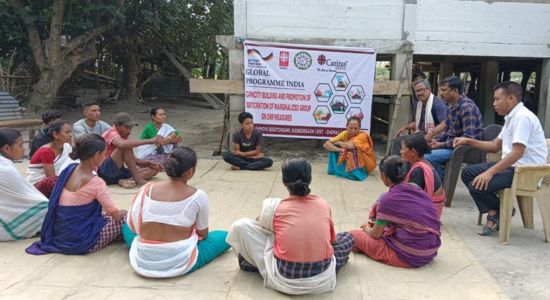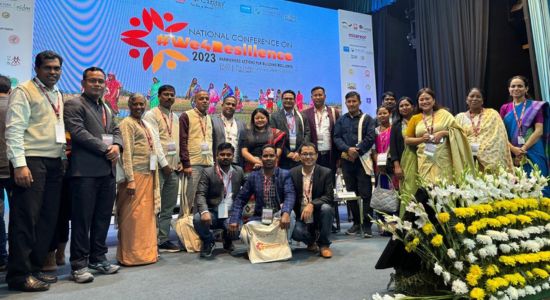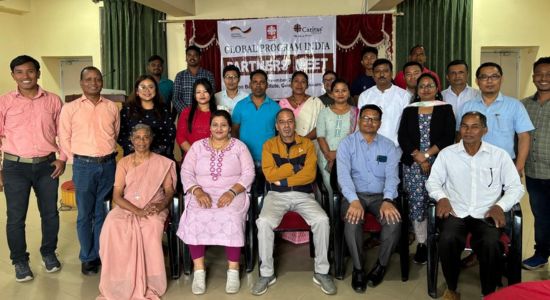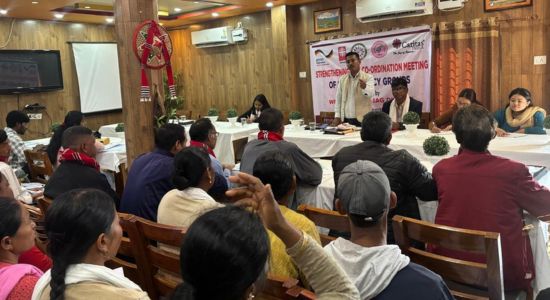WASH in Anganwadi Centres project is supported by UNICEF, Assam covering 8 districts of Assam out of which 7 are the aspirational districts namely – Baksa, Barpeta, Darrang, Dhubri, Goalpara, Udalguri, Hailakandi and one district from Bodo Land Territorial Council (Kokrajhar).
Achievements:
Developed a WASH database covering 17,073 AWCs, achieving 100% coverage across eight districts.
Developed cost action plan for WASH facilities in AWCs in five districts (Goalpara, Baksa, Barpeta, Udalguri and Kokrajhar) with an estimated cost INR 56.30 Cr.
Facilitated a water testing of 32,343 AWCs and 5100 certificates uploaded.
Enhanced capacity of 350 officials from health engineering department (PHED) and DWCD including DSWOs, CDPOs, Supervisors and Laboratory Technicians on Water Quality Testing and monitoring.
Facilitated the design of rainwater harvesting systems for 2500 AWCs across seven aspirational districts.
100 ICDS functionaries including CDPOs and Supervisors were trained on safety and dignity of Sanitation Workers.
Organized online training of 380 DWCD officials on Climate Resilience WASH facilities.
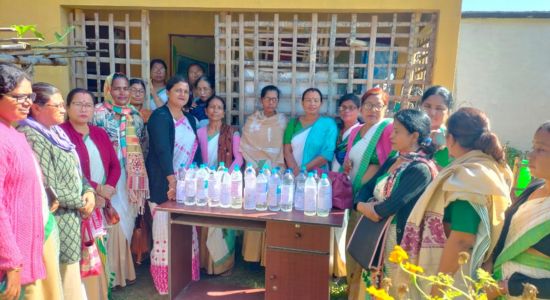
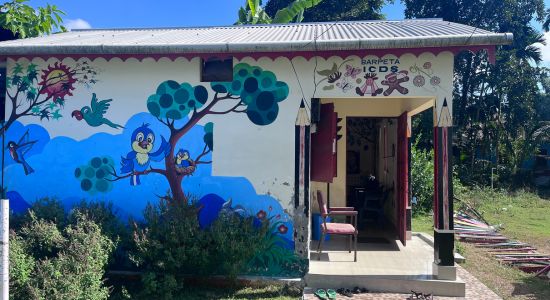
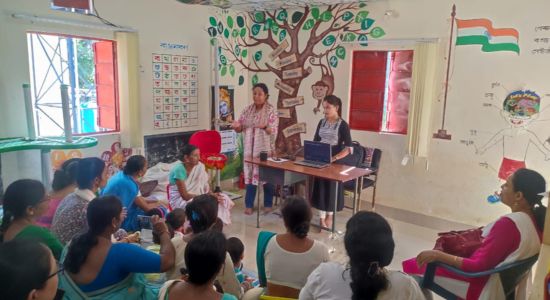

Faecal Sludge and Septage Management (FSSM) project is supported by UNICEF, Assam. The project is being implemented in the 6 ULB of Goalpara, Nagoan, Barpeta Town, Barpeta Road, Bongaigoan and
Major Interventions:
26,123 household assessments on FSSM: 100% household (HH) assessment was conducted for collecting septic tank data and sanitation practice for city wide sanitation practice for city wide sanitation plan at Goalpara, Nagaon and Barpeta Road. 11316 HH was surveyed at Goalpara, 10760 HH was surveyed at Nagaon and 4047 HH was surveyed at Barpeta Road.153 surveyors comprising of SHGs, NSS and local agencies were trained.
Planning and capacity building initiatives 90 ULB functionaries from different department including Municipal Board, PHED, PHE, DSWS, DHS, NULM, BDO, ASRLM, SSA etc. were trained.
Enhanced capacity of PRI: 92 elected representatives were sensitized their role.
Collaborating with NSS: 534 NSS volunteers were oriented to raise awareness on FSSM, the volunteers performed street play and conducted sanitation walk.44 NSS volunteers participated in the assessment.
Mason training 119 Masons were identified and skill development trainings were provided on right kind of septic tank.
Engaging Self-Help Group: 249 SHGs were oriented on FSSM for sensitizing communities trained on m-water application .They actively visited household and conduct street play and sanitation march.
Formation of committees: Four committee on FSSM was formed at each ULBs 304 members from different groups were included in these committees.
Awareness Campaigns: 78,200 people were reached and sensitized on FSSM as well as sanitation value chain.
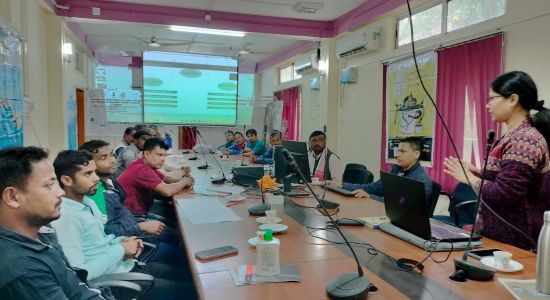
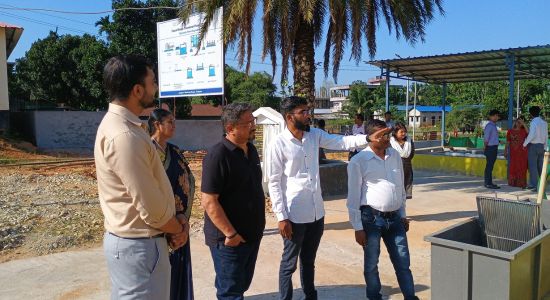
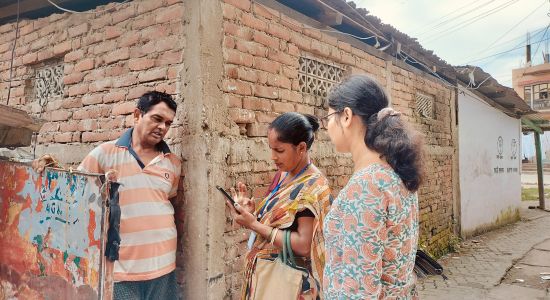
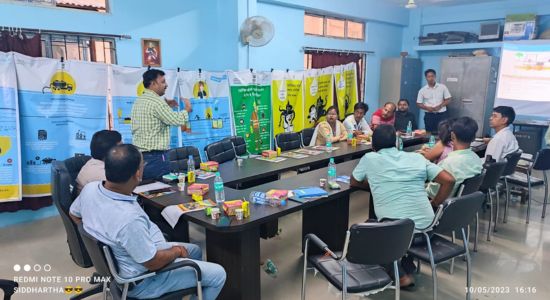
Major interventions:
900 women folk of the SHGs supported with vegetable seeds for their training.
43 HH’s supported with livestock.
110HH’s supported with poultry items.
07 youth oriented and send for welding and embroidery training.
238 malnourished children of 7 tea estate supported with nutritional foods.
Health Camps organised at Deberapar.
255 children supported with stationary and other educative materials.
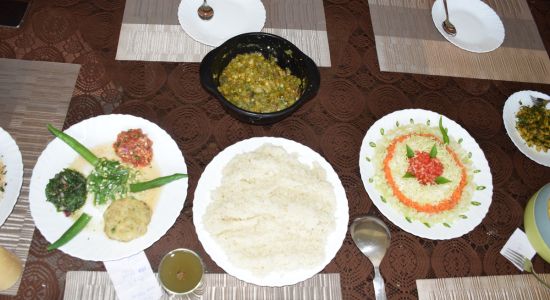
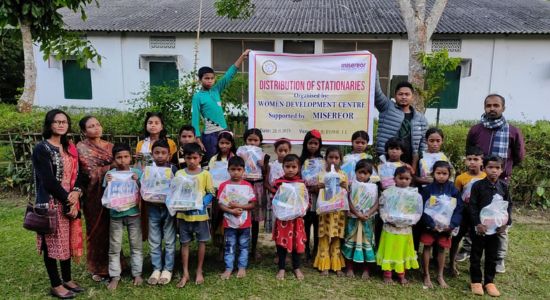
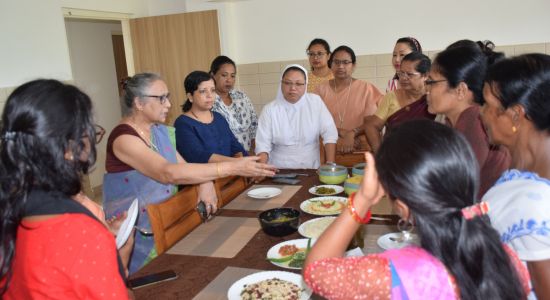
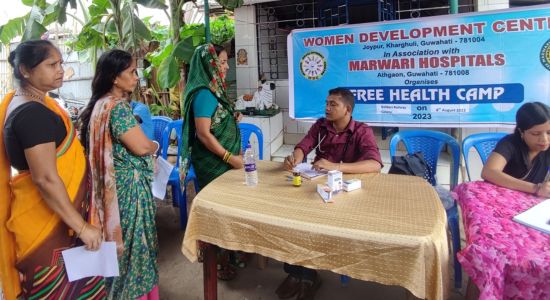
Major Interventions:
Identification of 10 villages was initiated.
Need based participatory rural appraisal (PRA) on WASH was undertaken in all the 10 villages.
Donor visits from Manos Unidas was conducted to see the project feasibility & interact with the community.
The infrastructure were made in 10 villages of two Districts.10 elevated hand pumps & 5 community toilets were to be made with the objectives to make the community to practice sustained provision of safe water ,dignified sanitation and good hygiene practices in the most flood affected villages in two blocks namely Raha in Nagaon & Nowboicha in N. Lakhimpur Districts
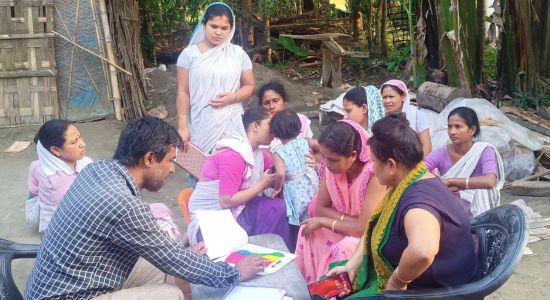
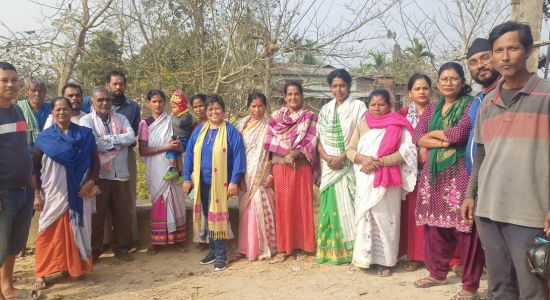
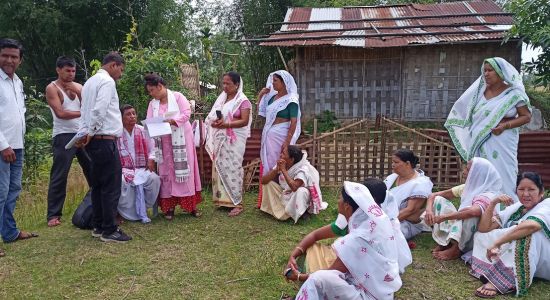
On November 15, 2023 the Areca nut disposal plate and slipper (Hawai Chappal) manufacturing unit of Digha Eco Enterprise in Akorabasti village under Kadam Circle, Lakhimpur District was inaugurated by Shri. Utpal Borah, ACS District Development Commissioner, Lakhimpur. He emphasized the potential of utilizing locally available resources, particularly areca nut industry for economic growth. Ms. Bhagyawati Bhuyan, Project Director of Women Development Centre (WDC), Guwahati was commended for her dedication to generating job opportunities in rural areas.
This activity aims to empower women from disadvantage and marginalized communities to become self reliant and gain control over their livelihood providing them with the resources and opportunities in getting financial access to live a dignified life.
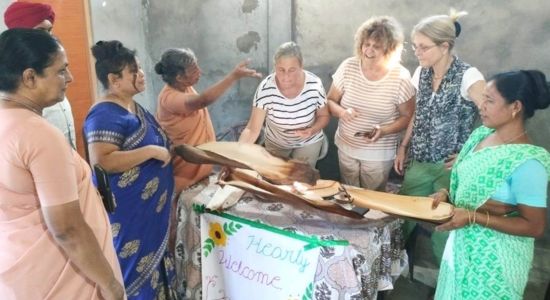
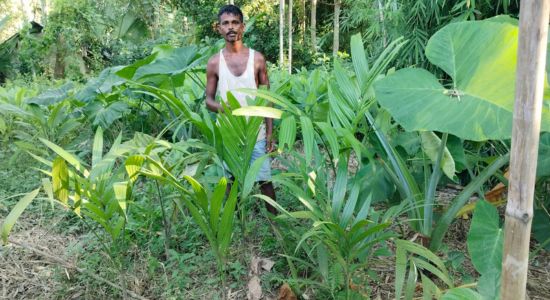
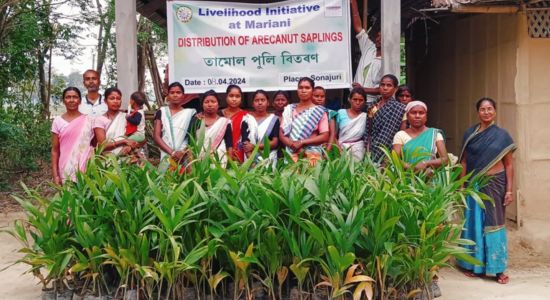
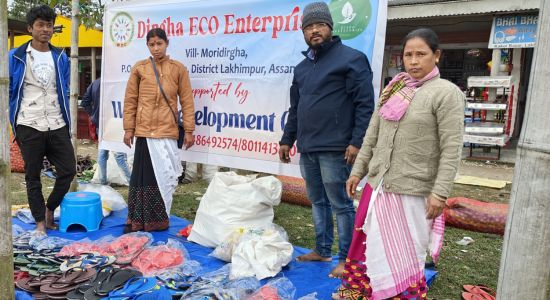
Scheme of Fund for Regeneration of Traditional Industries (SFURTI) project is supported by Ministry of MSME, GOI to promote Cluster Development and the implementing agency is WDC in collaboration with IIE the technical agency EPCH, Nodal agency. This project is covering 10 villages in Lakhimpur District under Nowboicha Block.
The key outcomes of this project:
Artisan Engagement: 730 artisans primarily from flood prone villages and predominantly from the Mising Tribe are engaged in the clusters.
Marketability Enhancement: Focus on new design interventions, improved packaging and marketing infrastructure to ensure sustainable livelihoods.
Cluster Advisory Group Meeting to ensure comprehensive planning and understanding of the project. Along with field inspection and reviews to ensure proper distribution and utilization of raw materials and equipments.
Technology Upgrade: Installation of 3-phase connections and advanced machinery like CAD, Bobbin Winding and Prin Winding Machines at the Common Facility Centre (CFC) to modernize production processes for women artisans.
Financial Reconciliation: Review meetings are held to reconcile artisans fund collections with relevant stakeholders.
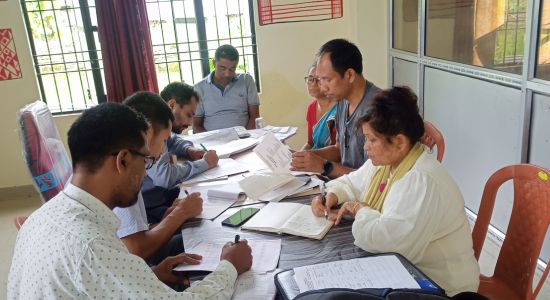
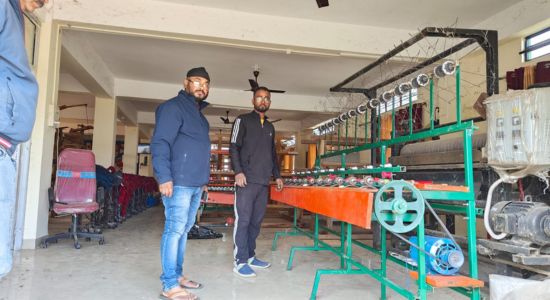
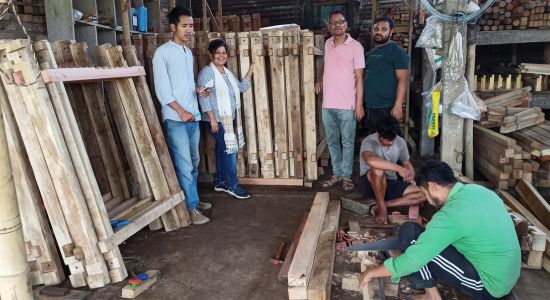
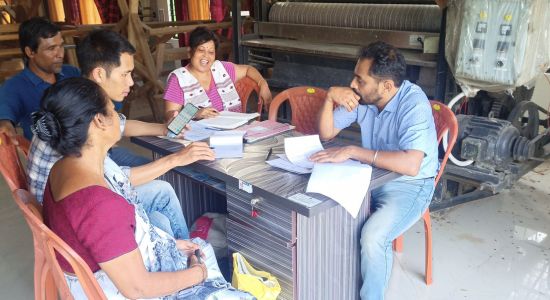
Sustainable Livelihood Development of Tribal Farmers / Women through Plantation of Eri, Work Food Plant and Handloom/Handicrafts Clusters of Eri & Muga Silk in Dhemaji District of Upper Assam is supported by Manos Unidas, Spain covering 9 villages in Dhemaji District of Assam. The objective is that women and farmers from 500 families are strengthened to rear Eri and Muga silk to establish improved Eri and Muga silk textile for quality products through looms towards generating sustainable business to increase the economic status and live a dignified life. The project catalyzed community interest in expanding sericulture activities, including Eri and Muga seed, cocoon and yarn production.

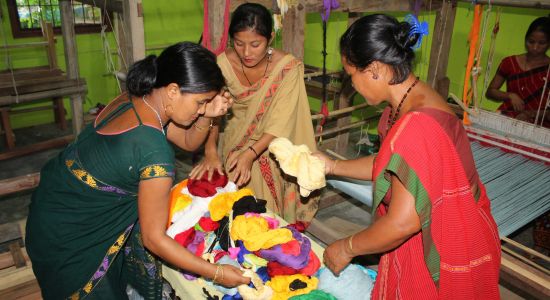
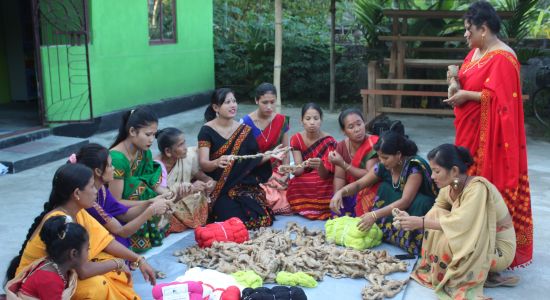
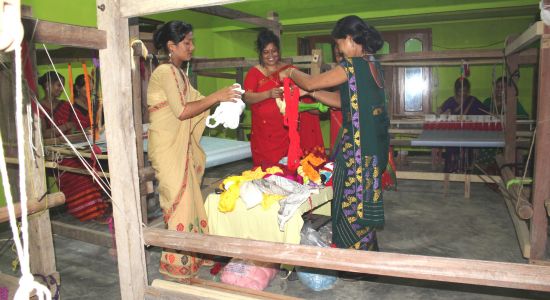
Awareness on Self-employment Generation is implemented in collaboration program with DICC, KVIC & MSME. Covering North Lakhimpur District of Assam to generate employment opportunities in rural as well as urban areas through setting up of new self-employment ventures.
Scheme Introductions on the Pradhan Mantri Employment Generation Program (PMEGP),Pradhan Mantri Formalization of Micro Food Processing Enterprises (PMFME), and Khadi Gramodyog Vikash Yojana (KVI), highlighting the support available for starting new businesses.
MSME Initiatives in promoting entrepreneurship and skill development, emphasizing assistance for accessing domestic and export markets.
Financial Support to obtain loans and credit facilities for business ventures, along with the necessary formalities and eligibility criteria.
Direct Engagement Encouraged to ensure efficient access to resources and benefits.
Focus on collaboration among stakeholders to maximize the impact of government subsidies and schemes, contributing to the achievement of Sustainable Development Goals (SDGs).
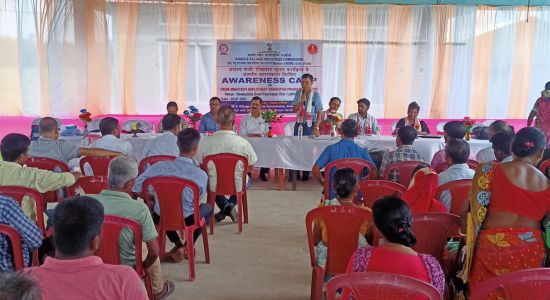
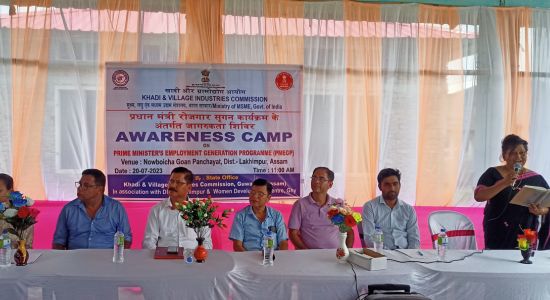
Emergence Flood Relief project was supported by Manos Unidas, Spain covering 9 villages in North Lakhimpur District of Assam. The objective is to minimize the risk of essentials needs for the affected victims to shelter, food, drinking water, basic medical cover and sanitation to the persons affected by disaster.
1,350 families received critical relief kits were distributed. Assistance was prioritized for the most vulnerable groups, such as women-households, marginal farmers, families of persons with disabilities and who suffered significant losses in the floods.
The successful execution of relief camps was driven by the collaboration of local leaders, and volunteers Shri Nilon Moni Sarkar (Goan Pradhan), Chinanda Mondal (Ward Member), and Shri Sanju Singh.
The operation was bolstered by strong cooperation from Manos Unidas, the District Administration and the District Disaster Management (DDMA), particularly with support from Madam Papori Bora, District Project Officer (DPO).
Immediate relief reached 14 flood-affected villages in Nowboicha, providing essential resources to stabilize affected families during the first and second waves of flooding in May and June 2023.
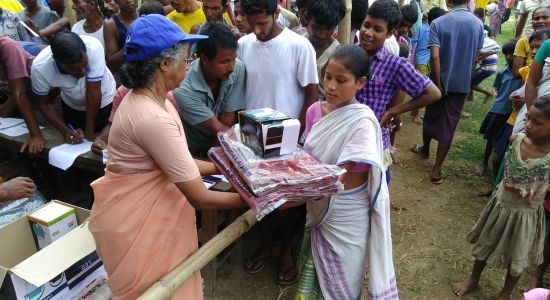

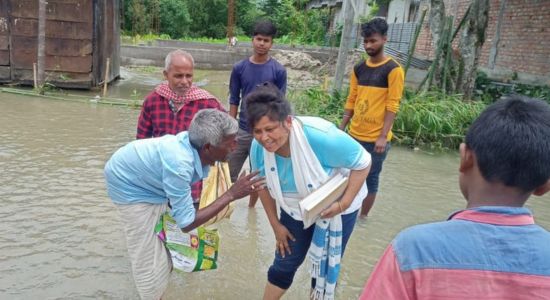
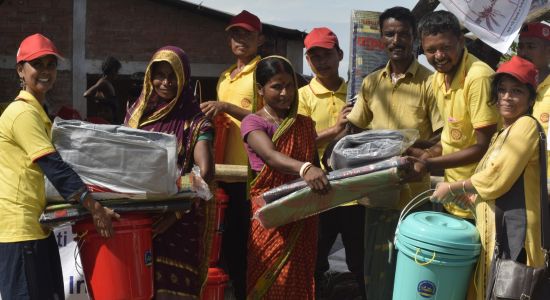
Women Development Centre (WDC) started working for the education of dropout & underprivileged girls with under metric background from all across North East India since 2005 in residential mode. In these years WDC supported 1000 girl students to successfully complete their secondary and higher secondary examinations. Our Residential Bridge Course Programme provides structured learning environment, qualified teachers and resources to help them succeed with a holistic approach. Our goal to enable the school dropout girls to pass their Secondary and Higher Secondary level education is to prepare these young adults for both higher education and future career, so that we could address the issues of trafficking and migration through good education.
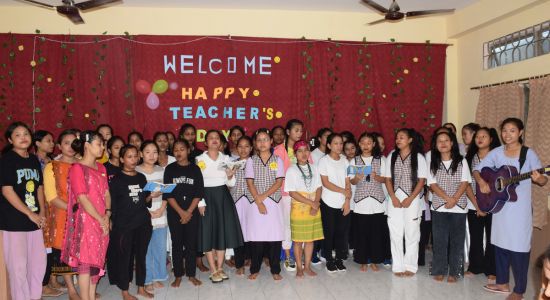
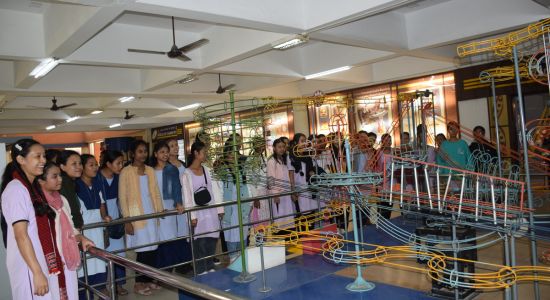
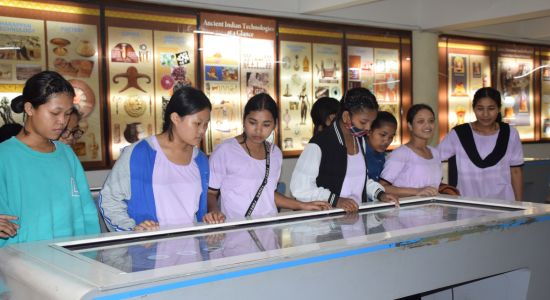
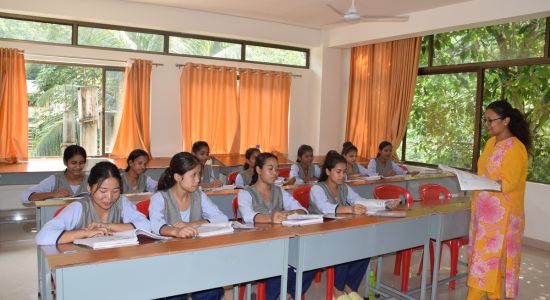
Sustainable improvement of Education and Training of Girls and Young Women in the Slum Areas of Guwahati supported by: Kindermissionwerk Die Stersinger, Germany, coverage in 6 Slums of Uzanbazar, Pub Bhaskanagar, Ulubari Punjabi colony, Ulubari, Telegu Colony, Kalibari Railway Colony in Guwahati, Kamrup (Metro) District, Assam.
Major Interventions:
Environment Week (27 May to 03 June): During Environment Week, from six slums 1,189 persons participated in various activities generated environment awareness.
Child Right Week: Children showcased a variety of activities participated in games and sports, quiz competition, fashion shows, street plays and visited the planetarium. This event not only celebrated with 1090 children to strengthened their understanding of these vital issues.
Youth Skill Development: A focused effort on youth empowerment led to the identification of 137 young individuals. Notably, 29 of these youths successfully completed a beautician course vocational training has provided them with the skills necessary to pursue careers in the beauty industry, contributing to their financial independence and self –sufficiency.
Capacity building for women’s group: 46 women’s groups and 10 Mothers’ groups were trained focusing on financial literacy, nutrition, and immunization. Additionally, nine women’s groups were successfully linked to banks.
Child Friendly Spaces (CFS): The establishment of 10 Child Friendly Spaces (CFS) has significantly increased awareness on child rights, 294 children, including 134 boys and 160 girls, regularly participated in various activities at the CFS. 27 school dropout children were brought back to school.
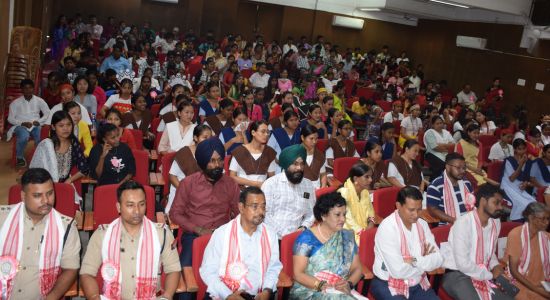
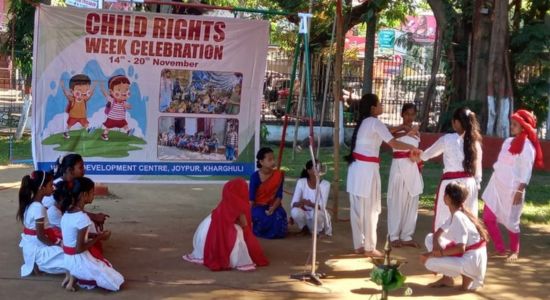
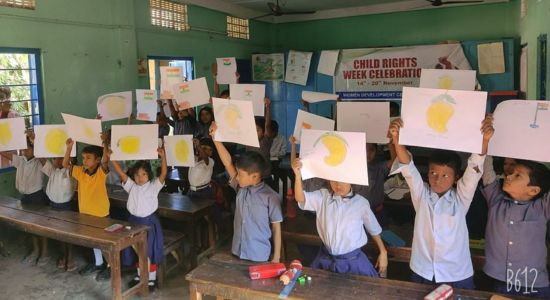
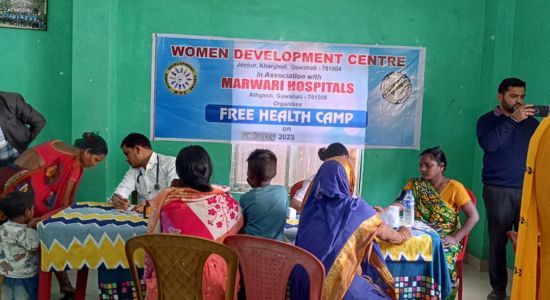
BMZ Global Program India supported by German Cooperation and Caritas Germany in Dhemaji district of Assam covering 20 villages in 2 Blocks viz. Sissiborgaon & Machkhow.
Major Interventions:
Workshops on GPDP and DRR Action Planning: 196 participants on the Gram Panchayat Development Plan empowered communities to effectively create Disaster Risk Reduction (DRR) action plans during the Participatory Disaster Risk Assessment (PDRA) exercises.
Coordination Meetings in Panchayats: 15 coordination meeting were held across 4 Panchayats, with 275 participants ensured the effective implementation of project activities, enhancing community engagement and accountability.
Participatory Disaster Risk Assessment (PDRA) and DRR Plans: PDRA exercises were completed in 20 villages from 2021 to 2024, resulting in the submission of 60 DRR plans. Out of these, 6 Civil Protection Schemes have been successfully implemented, significantly enhancing community disaster resilience.
DRR Plans and Infrastructure Development: Participatory Disaster Risk Assessment (PDRA) exercises were completed in 20 villages from 2021 to 2024, resulting in 60 DRR plans submitted. Out of these, 6 civil protection schemes have been implemented.
Enchanced capacity of 1085 people trained in 2021-24.
Public Information Campaigns and Social Security Access: 80 public information campaigns reached 2,272 participants and were followed by the We-Resilience Campaign, leading to significant access to social security schemes for marginalized communities.
